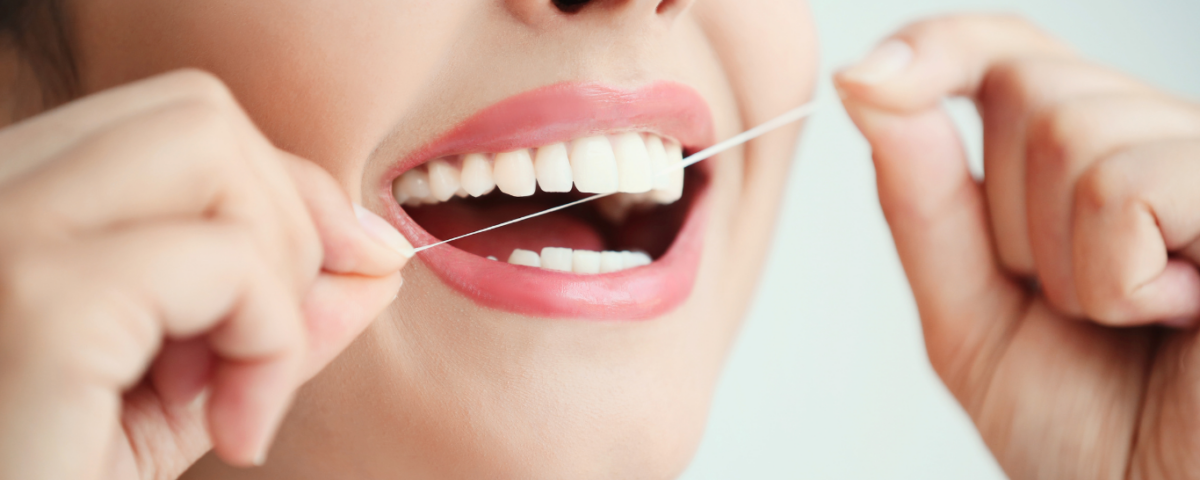
The Top Benefits of Teeth Cleaning: Our Guide
May 14, 2024Key Takeaways:
Preventative Care:
Regular dental cleanings can prevent tooth decay, gum disease, and other oral health issues by removing plaque and tartar buildup.
Overall Health Connection:
Keeping your teeth clean is important for your overall health, as poor oral health has been linked to cardiovascular and respiratory problems.
Daily Oral Hygiene:
Consistent practices like brushing, flossing, using mouthwash, and maintaining a healthy diet can help keep your teeth clean and prevent bad breath, tooth decay, and gum disease.
Do you wonder why it is important to keep your teeth clean? Well, neglecting your dental hygiene can lead to a variety of problems beyond bad breath. Inadequate tooth cleaning can have a severe influence on your overall health.
Let’s discuss the importance of frequent dental cleanings, their function in the early diagnosis of oral health issues, and more.
What Happens When You Don’t Keep Your Teeth Clean?
Neglecting proper oral hygiene can lead to various issues affecting your mouth. These conditions arise due to the accumulation of germs and bacteria, causing harm to your teeth and gums. It is important to ask your dentist what is the best oral hygiene routine.
When germs and bacteria are allowed to grow in the mouth, they can feed on food particles. This leads to producing acids that eventually can cause decay and cavities. Untreated gum disease can spread over time, causing swelling and bleeding gums, as well as tooth loss. Plaque and tartar accumulation can not only exacerbate these oral health issues, but also raise the risk of periodontal disease.
Bad Breath and Oral Odor
Bad breath, scientifically termed halitosis, is a common issue arising from inadequate oral hygiene practices. These bacteria produce malodorous gasses that contribute to unpleasant breath odor.
The presence of food particles left uncleaned on teeth, gums, and the tongue provides an ideal environment for these bacteria to thrive. Without regular brushing and flossing, these bacteria multiply, leading to the distinctive foul smell associated with bad breath. Additionally, certain foods containing volatile sulfur compounds, such as onions and garlic, can further intensify the problem by contributing to the unpleasant odors in the mouth.
The Buildup of Plaque and Tartar
Plaque, a sticky film primarily consisting of bacteria, can wreak havoc on oral health when oral hygiene is overlooked. This adheres to teeth and gums, gradually hardening into tartar if not effectively managed. The consequences of untreated plaque extend beyond mere inconvenience, potentially paving the way for gum disease and tooth decay.
As plaque accumulates, it initiates a series of detrimental effects on oral tissues. The irritation caused by plaque buildup often manifests as gum inflammation and redness, marking the onset of gingivitis. Without timely intervention, gingivitis can progress into a more severe form of gum disease known as periodontitis. This advanced stage not only poses risks of bone deterioration but also increases the likelihood of tooth loss. Understanding how to treat gingivitis is crucial.
The bacteria residing in plaque contribute to tooth decay by releasing acids that corrode tooth enamel. This process, if left unchecked, can result in the formation of cavities and structural damage to teeth. To combat the harmful effects of plaque and tartar, consistent oral care practices such as regular brushing, flossing, and professional dental cleanings in Charlotte NC are indispensable.
Dental cleanings performed by trained professionals play a crucial role in plaque and tartar management. During these cleanings, tartar deposits are meticulously removed, significantly reducing the risk of dental complications. By prioritizing preventive measures and seeking routine dental care, individuals can safeguard their oral health and mitigate the potential impact of plaque-related issues.
Tooth Decay and Cavities
As we briefly mentioned tooth decay above, let’s dive deeper into this separate segment about it. Tooth decay is a common dental concern caused by bacteria in the mouth that feed on sugars from food, producing acids that erode tooth enamel. This erosion leads to the development of cavities, which can escalate without proper oral care.
As cavities deepen, they can reach the inner layers of the tooth, causing pain and sensitivity. Preventive measures such as regular dental cleanings and daily brushing with fluoride toothpaste are crucial in maintaining oral health. It’s also important to reduce the consumption of sugary snacks and drinks, as they fuel bacterial growth and increase the risk of decay.
By adopting these preventive measures and practicing good oral hygiene habits, individuals can significantly reduce their chances of developing tooth decay and related complications.
Gum Disease and Inflammation
Gum disease, commonly known as periodontal disease, is defined as gum inflammation caused by bacterial growth in plaque and tartar. Without action, it can proceed to more serious stages, compromising gum health.
Gum inflammation is the body’s response to dangerous microorganisms, resulting in redness, swelling, and bleeding. When left untreated, germs can enter deeper tissues, causing irreparable damage to the bone that supports the teeth.
Early detection of gum disease is crucial as it allows for timely treatment. Often starting with professional cleanings to remove hardened plaque. Combining cleanings with a consistent oral hygiene routine can significantly reduce the risk of gum disease progression.
How Regular Dental Cleanings Can Help
Regular dental cleanings are essential for removing plaque and tartar buildup that cannot be addressed through regular brushing and flossing alone. These cleaning sessions help maintain optimal oral health by preventing gum disease and tooth decay.
During these cleanings, dental professionals conduct thorough examinations to spot any early signs of oral issues. Detecting problems early allows for timely treatment, preventing potential complications down the road. The removal of hardened plaque during these sessions is particularly important, as it can otherwise progress to more severe conditions like periodontitis.
Aside from the health benefits, regular cleanings leave your teeth feeling fresh and looking cleaner, enhancing your overall smile. It’s like giving your teeth a spa treatment! By investing in these routine cleanings, you’re taking a proactive step toward maintaining lasting oral health and well-being.
Removing Plaque and Tartar Buildup
During a dental cleaning, the dental hygienist utilizes specialized tools to remove stubborn plaque and tartar deposits from the surfaces of teeth and along the gum line, ensuring a thorough cleaning process.
One of the key tools used by dental hygienists is the scaler, which is designed to carefully scrape off the hardened plaque and tartar buildup. This process, known as scaling, helps prevent gum disease and tooth decay. Alongside scaling, the hygienist may also use an ultrasonic scaler, a vibrating device that breaks down plaque and tartar with high-frequency vibrations. This advanced technology allows for a more efficient and comfortable cleaning experience for the patient.
Early Detection of Oral Health Issues
Regular dental cleanings enable early detection of oral health issues such as cavities, gum disease, and infections.
By attending regular dental check-ups, individuals can stay ahead of potential oral health concerns, ensuring that any signs of decay or infection are spotted promptly. This proactive approach not only allows for timely intervention but significantly reduces the risk of more severe dental issues developing over time.
Taking care of these problems early on can save patients both time and money, while also preserving the overall health of their teeth and gums. Through routine dental cleanings, individuals can maintain optimal oral hygiene and prevent the need for extensive treatments in the future.
Preventing Tooth Decay and Gum Disease
Regular dental cleanings play a crucial role in preventing tooth decay and gum disease by removing plaque and tartar that contribute to these conditions. This preventive measure helps maintain healthy teeth and gums.
During a dental cleaning, the hygienist will also check for signs of other dental issues, such as cavities or early stages of gum disease. Prevention is key when it comes to oral health, as catching problems early can save you from more serious treatments down the line. By scheduling regular cleanings, you are investing in the long-term health of your mouth. Remember, a healthy smile is more than just a cosmetic concern; it’s a reflection of your overall well-being.
The Link Between Oral Health and Overall Health
Maintaining excellent dental health is not only necessary for a healthy mouth, but it also benefits general well-being because oral health is connected to systemic illnesses such as diabetes, heart disease, and infections.
Picture it this way – oral health provides a window into the body’s general health, with the mouth serving as a conduit to the rest of the system. When dental hygiene is ignored, dangerous germs can proliferate, causing a variety of health complications outside of the mouth.
Preventive dentistry is important in preventing systemic illnesses by maintaining a healthy dental environment and lowering the risk of infections and inflammation, which can initiate or aggravate disorders such as diabetes and cardiovascular disease.
Poor Dental Hygiene Might Impact Cardiovascular Health
Studies have shown a correlation between poor oral health and cardiovascular diseases like heart disease, emphasizing the importance of maintaining healthy teeth and gums for overall cardiovascular well-being.
According to recent studies, the relationship between dental health and cardiovascular diseases extends beyond surface issues, delving into the complex interplay between the mouth and the heart. According to research, those who have gum disease are more likely to have cardiac issues because bacteria from the mouth spreads to the circulation. This bacterial invasion can cause inflammation in the body, perhaps leading to the development or worsening of diseases like diabetes as we previously mentioned.
Respiratory Health Can Be Impacted Too
Respiratory health isn’t just about what’s happening in the lungs—it starts with the mouth. Oral infections and bacteria can easily find their way into the respiratory system, potentially leading to serious conditions like pneumonia. That’s why maintaining good oral hygiene is crucial not only for a bright smile but also for your overall well-being.
By keeping your mouth clean through regular brushing, flossing, and dental check-ups, you can significantly reduce the risk of respiratory issues. These simple practices help prevent the buildup of plaque and bacteria that can contribute to oral infections and ultimately impact your respiratory health.
In addition to basic oral hygiene habits, you can further support your respiratory wellness by maintaining a healthy oral microbiome. Using antimicrobial mouthwashes and incorporating probiotic-rich foods into your diet can help keep harmful bacteria at bay, reducing the chances of oral conditions that might affect your respiratory system.
Remember, a healthy mouth isn’t just a cosmetic concern—it’s a crucial part of safeguarding your overall health, including your respiratory well-being. This is why it is important to keep your teeth clean.
Pregnancy and Fetal Health
Expectant mothers should place a high priority on their oral health. Gum disease and infections can pose risks to both maternal and fetal well-being during pregnancy. Good oral hygiene practices are essential for maintaining optimal health for both mother and baby throughout this crucial period.
Pregnancy brings hormonal changes that can increase the susceptibility to gum disease. Untreated gum disease has been associated with adverse pregnancy outcomes such as preterm birth, low birth weight, and other complications.
By taking proactive steps to maintain good oral hygiene, expectant mothers can help pave the way for a healthier pregnancy.
10 Steps for Maintaining Clean Teeth
Here are ten expert tips to help you achieve and maintain a healthy smile on the long run:
- Master Your Brushing Technique – Begin by choosing a soft-bristled toothbrush and fluoride toothpaste. Brush your teeth gently in circular motions for at least two minutes, making sure to cover all tooth surfaces and along the gum line. Remember, brushing too hard can damage your gums and enamel.
- Don’t Forget to Floss – Flossing is just as important as brushing, if not more. It helps remove food particles and plaque from between teeth and below the gumline, where your toothbrush cannot reach. Aim to floss at least once a day, preferably before bedtime.
- Schedule Regular Dental Check-ups – Make it a habit to visit your dentist every six months for professional cleanings and examinations. You can contact us at Langley Dental Care to schedule your check-ups.
- Watch Your Sugar Intake – limit your consumption of sugary foods and drinks, as sugar promotes bacterial growth that leads to plaque formation and tooth decay. Opt for healthier snacks like fruits, vegetables, and nuts instead.
- Stay Hydrated – water is not just essential for your overall health; it also helps wash away food particles and bacteria, keeping your mouth clean and reducing the risk of cavities. Drink plenty of water throughout the day.
- Consider Using Mouthwash – an antimicrobial mouthwash that can complement your oral hygiene routine by killing bacteria and freshening your breath. However, remember that mouthwash should not replace brushing and flossing.
- Say No to Tobacco – smoking and chewing tobacco not only stains your teeth but also promotes gum disease and increases the risk of oral cancer. Quitting tobacco products is one of the best things you can do for your oral health.
- Maintain a Healthy Diet – a balanced diet plays a crucial role in dental health. Include plenty of fruits, vegetables, lean proteins, and dairy products in your diet to provide essential nutrients for strong teeth and gums.
- Protect Your Teeth During Physical Activities – if you participate in sports or activities that pose a risk of dental injuries, wear a mouthguard to protect your teeth from damage. Avoid using your teeth as tools for opening packages or biting on hard objects.
- Replace Your Toothbrush Regularly – over time, toothbrush bristles can wear out and become less effective at cleaning your teeth. Replace your toothbrush every three to four months, or sooner if the bristles become frayed.
Keep In Mind Using Mouthwash
As we mentioned mouthwash is a consideration in the 10 steps Incorporating mouthwash into daily oral hygiene routine, here we want to go a little bit further regarding this step.
Using a mouthwash with antibacterial properties offers several advantages for maintaining optimal oral health. These specialized mouthwashes are formulated to target harmful bacteria in the oral cavity, reducing the risk of developing common dental issues such as gum disease and cavities.
One of the noticeable benefits of using mouthwash is its ability to leave a refreshing sensation in the mouth. The antibacterial action not only combats bad breath but also provides a long-lasting feeling of cleanliness and freshness.
Eat a Healthy Diet
Maintaining a healthy diet rich in nutrients is essential for promoting oral health and preventing dental issues. Nutrient-dense foods support strong teeth and gums while reducing the risk of oral diseases.
Specific nutrients play a crucial role in maintaining oral health. For example, calcium and vitamin D are vital for strong teeth and bones, helping to prevent cavities and tooth decay. Vitamin C promotes healthy gums and aids in wound healing. Additionally, antioxidants like vitamin E reduce inflammation in the mouth. Including leafy greens, dairy products, fruits, and lean proteins in your diet can provide these essential nutrients. Limiting sugary and acidic foods is also important to protect your teeth from enamel erosion and decay.
Avoid Harmful Habits
Avoiding hazardous habits such as smoking and excessive alcohol intake is extremely important for maintaining oral health. These practices can lead to gum disease, tooth decay, and other dental problems.
Smoking delivers hazardous chemicals into the body, which can reduce blood flow to the gums, increasing the risk of infection and gum disease. Nicotine in cigarettes impairs the immune system, making it more difficult for the body to fight microorganisms that cause tooth decay. Furthermore, the staining impact of tobacco can discolor teeth and impair overall oral aesthetics.
The Benefits of Keeping Your Teeth Clean and Regular Dental Cleanings
Regular dental cleanings are necessary for maintaining clean teeth and promoting excellent oral health. These preventative actions improve general health by lowering the risk of infections and other health problems.
Regular dental cleanings eliminate plaque and tartar accumulation, which can cause cavities and periodontal disease. Besides, it allows for the early diagnosis of any possible oral health concerns. Addressing issues in their early stages allows you to avoid more comprehensive and expensive treatments later on.
Schedule an appointment with Langley Dental Care for your regular dental cleanings. Our team of experienced professionals is dedicated to providing personalized care and guidance to ensure your oral health needs.
Frequently Asked Questions
Why is it important to keep your teeth clean?
Keeping your teeth clean is essential for maintaining good oral health and overall well-being. Here are six frequently asked questions about the importance of keeping your teeth clean.
How does keeping your teeth clean improve bad breath?
Bad breath is often caused by bacteria that build up in your mouth. By regularly brushing and flossing your teeth, you can remove these bacteria and prevent bad breath.
How can regular dental cleanings lead to better overall health?
Poor oral health has been linked to various health issues, such as heart disease and diabetes. By keeping your teeth clean and having regular dental cleanings, you can reduce your risk of developing these conditions.
Why is it important to detect oral health issues early?
Many oral health issues, such as gum disease and tooth decay, can be prevented or treated more effectively when caught early. Regular dental cleanings can help detect these issues before they become more serious.
How can keeping your teeth clean prevent tooth decay?
Brushing and flossing your teeth removes plaque, a sticky film of bacteria that can lead to tooth decay. By keeping your teeth clean, you can prevent plaque buildup and protect your teeth from decay.
How does keeping your teeth clean prevent gum disease?
Gum disease is another common oral health issue that can be prevented by keeping your teeth clean. By removing plaque and tartar from your teeth, you can prevent gum disease and maintain healthy gums.
What role do dental cleanings play in maintaining good oral hygiene?
While brushing and flossing are important for daily oral hygiene, dental cleanings provide a deeper clean that removes plaque and tartar from hard-to-reach areas. This helps keep your teeth and gums healthy and prevents oral health issues.



